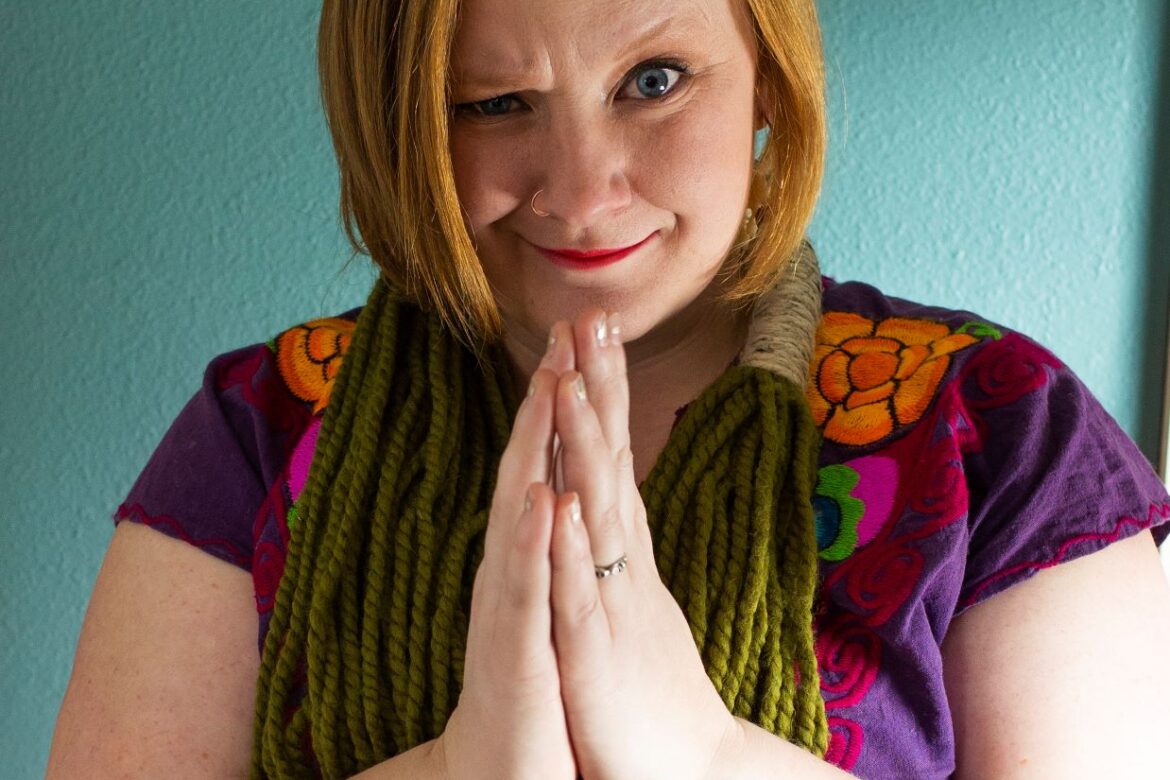As we’re gearing up to bring you Issue #2 of Decoded Pride, we wanted to sit down with the editors of this issue to find out what they love to read, why speculative fiction matters to them, and what their wildest dreams are for the future of Decoded Pride!
In this edition, we’re talking to S.E. Fleenor, writer, editor, critic, podcaster, and writing coach. S.E. tells us about their love of all things weird, rejecting social norms through speculative fiction, and the importance of imagination.
And, don’t forget you can pre-order your subscription to Issue #2 now or get your full-color PDF version of Decoded Pride Issue #1 (and eBook reader copies as well!) at the Queer Spec Store!
What are your favorite kinds of stories to read?
I have very diverse reading habits. I love everything from comics to hard scifi to urban fantasy and beyond—and if it’s queer, I love it even more. Stories that surprise me or creep me out are among my favorites. I love to laugh and I appreciate a good satire that walks that line between funny and sardonic carefully. I also love a gut-wrenching story that makes me feel like I’m going to weep my eyes out. I like most experimental, creative, and weird stories and comics I read. Basically, if it’s queer, I’m in!
Why do you like speculative fiction in particular?
In Emergent Strategy, adrienne maree brown writes: “Science fiction is simply a way to practice the future together…It is our right and responsibility to create a new world.” Like both Monika and Sara have said, I believe that when we write speculative fiction we create space for different, better worlds to exist. By telling each other stories from outside of the societies that form us to the degree possible, we provide a cure to one of the greatest ailments of today: a lack of imagination.
What’s the connection between speculative fiction and queerness in your mind? Why is speculative fiction so important to queer stories?
Queer speculative fiction has the ability to portray both queer coding and queer representation in such a way that they mutually reinforce one another. Horror that is queer has a different way of being scary. Gender variant fantasy pushes the bounds of who we see as heroes. Queer monster love stories show us how to love our queerness and our abjectness a little better. The list goes on. All forms of speculative fiction and kinds of queerness bring a different flavor to each story.
By the nature of our relationship to dominant society, queer and trans people are put in the position of contorting ourselves into respectable forms. Speculative fiction gives us a means to reject not just the norms of our societies, but the rules about how the world does or doesn’t work. We get to bring our unique insight as people who defy binaries and conformity to a world in desperate need of our brilliance. It is not the job of marginalized people to conform, but to liberate ourselves and each other.
What was the first queer speculative story you read that blew you away? Why did it move you so?
Octavia E. Butler’s Dawn changed the way I think about stories. Butler communicated her beliefs and insights on the human condition on so many levels in the novel. More than that, Dawn paints a frightening, but fascinating picture of the future after an atomic fire destroys Earth. Not only are there aliens but they are polyamorous, have a third gender, and love to get freaky with humans (and many others). Lilith Iyapo, the human protagonist, and her struggle for survival and belonging feel fundamentally queer.
So much of my training in educational institutions had been hostile to speculative fiction. Then I read Butler delivering more eloquent philosophy than any of the tomes that had been required to read to get my degrees and I knew where I belonged.
What’s your favorite part of working on Decoded Pride?
Getting to read over a 150 queer, speculative short stories and comics during out submission period is pretty special. I’m also a big-time word nerd, so I love digging into our creators’ projects with them. Working together to fine tune their stories and comics so that they are as strong as possible is so much fun—and I get to understand their work at an even deeper level. Finally, I adore getting to share this labor of queer love with the world. (ahem, pick up your copy of Decoded Pride Issue #2 today!)
What are your wildest dreams for the future of Decoded Pride?
I’m probably somewhere between Sara and Monika on this one, lol. I would love to see Decoded Pride become a self-sustaining project that allows us to continue to elevate LGBTQ+ voices in speculative fiction and comics. I have dreams of making an audiobook version, perhaps of a Best Of collection; and I’d love to see adaptations of our stories to film. Whatever the future holds, I look forward to continuing to make speculative fiction and comics queerer than ever.

